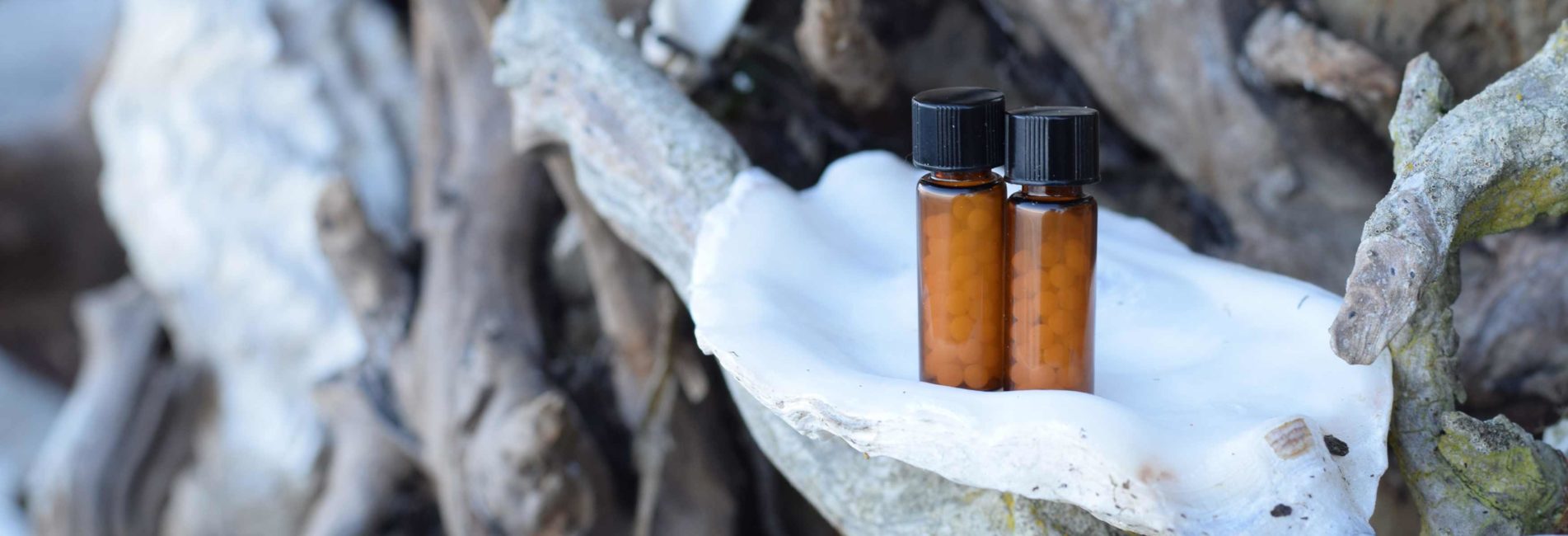A recent study discounts the the use of Homeopathic preparations of pathogenic (nosodes) materials taken as a form of inoculation. The study seems credible and should be of interest to anyone that thinks a dose of a Hommeopathc nosode will lead to immunity in the same way a vaccine of attenuated viruses would. In short, the study disproved that Homeopathically prepared nosodes taken as a vaccine can produce antigens to the disease. The lesson from this study to me is that using Homeopathy as a vaccination without adhering to the principle of finding a Homeopathic simillimum will lead to unreliable results.
The Canadian double-blind study using 2 combinations of vaccine (diphtheria, pertussis, tetanus (Tdap) and mumps, measles, rubella (MMR) vaccines) showed that the use of homeopathically (Ultra High Dilution) prepared forms of these combined vaccines compared to the injected forms of vaccines and also compared the effects to placebo. The study concluded that the homeopathically prepared vaccines ‘nosodes’ had no better effect than placebo whereas the injectable vaccines were shown to produce antigens to the diseases being inoculated for.
The authors write they are unaware of any studies showing the human antigen, this is ‘Cherry picked’ information and a simple search of PubMed would yield more than a few. As a counterpoint to the authors views I encourage you to watch the interview below with the creator of the ‘HIB’ meningitis vaccine in which she explains how and why her priorities shifted from conventional (‘allopathic’) vaccines to the use of homeopathy.
That no antigens were produced by the homeopathic ‘nosode’ should not come as a surprise to anyone that understands homeopathy or the principle of vaccines. It should be noted that the use of ‘nosodes’ is not based on homeopathic principles. In homeopathic philosophy this is known as Isopathy where a preparation of a disease substance is manufactured in dilution according to a method of ultra high dilution. Not all homeopaths ascribe to the above idea and those known as Classical Homeopaths work within principles well established from the inception of Homeopathy in the 1800’s.
To explain a little about the difference between Isopathy and Homeopathy it should be understood that homeopathic medicines are prescribed upon the nuanced state of an individual’s state or reaction to a disease not on a diagnosed name of the disease being treated.
The actual term used by homeopaths for the use of a nosode is ‘isopathy’. Isopathy is more similar to desensitization than to homeopathy and works similarly to desensitization in allergy treatments. The word Homeopathy is derived from the Greek words ‘Homos’ (man) and ‘pathy’ (similar illness). Where a medicine is prescribed by its ability to produce the similar state of reaction a patient is having.
This means that homeopathy, if it works, does so attenuating the body’s responses or state of reaction when diseased. It occurs by giving a dose of a substance that produces the similar state of reaction. It is given in dilution so there is only a stimulus to the body’s vital responses to its own management of the disease. The best reactions to homeopathic medicines come from the similarity the medicine has to the state the patient is in. The homeopathic medicine being prescribed is not prescribed to treat a pathogenic disease and is not used for a drug effect limiting the body’s responses to that particular disease. When well prescribed a homeopathic supports an efficiency of reaction through stimulus of the sensitivity a patient has to a ‘like’ medicine. A well-prescribed homeopathic medicine is one that produces not a disease but one that produces a condition of reaction to that disease. This can mean that homeopathic medicines are given to each individual and not in defense of a single pathogen.
As a homeopath there are times when a so-called ‘nosode’, remedy made from a disease, is useful and I have found the limited experimentation I’ve made with using these for prevention unremarkable. So, my experience is that the study is useful to limit the un-homeopathic use of ‘isopathy’. Further, it is also my experience that combination formulas of homeopathically prepared medicines are also unreliable. My hope from this study is that homeopaths and medical practitioners using homeopathy return to the practices that are well proven in the field. I myself have undergone a return to the original works of homeopaths as these I have found to be the most reliable resources.
It is my job to understand this study and so for any homeopath or member of the public that held the belief that homeopathically prepared medicines can be as effective at creating immunity can now be certain that the benefits are simply not there. What deserves further questioning is the manner of the body’s sensitivity to a ‘like’ producing substance and further understanding of the remarkable responses to ‘Ultra High Dilution’ medicines. There are plenty of supportive scientific studies demonstrating this principle.
Other resources:



